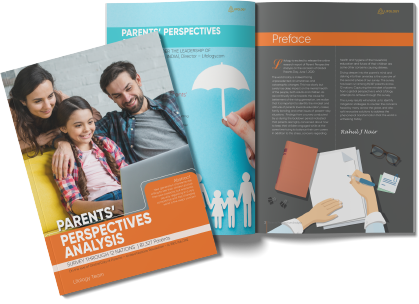Sanjana Narendran
Senior Curriculum Developer, Adobe
As the field of instructional design continues to evolve and gain momentum, Sanjana Narendran, Senior Curriculum Developer at Adobe with over nine years of experience, shares her expertise in this insightful article, covering everything you need to know about this burgeoning career path
Back in 2015, when I completed my post-graduation in Mass Communication from University of Hyderabad, I was asked to attend an interview for the post of Instructional Designer. As the role was for a fresher, I was not supposed to know much about the job. I attended the interview, cleared all the rounds, and was selected for the job. That is when I started my job as an Instructional Designer. I knew very little about the role and what I was supposed to do. Today, when I look back, I feel happy that I chose to be an Instructional Designer because it helps me enable others to do the best on their jobs, which makes it a satisfying career choice.
What is Instructional Designing?
Instructional Designers create effective, engaging, and impactful learning experiences by analyzing the learner needs. We provide training as a solution to bridge the skill and knowledge gaps of our learners. To do this, we gather information about what they know and what they need to know to excel on their job, apply learning theories and models to the information, derive learning objectives, and then build the learning experiences. The learning experiences are built on authoring tools with ideas to engage the learners, reinforce the learning, and to ensure that the learners retain what they learnt.
The learning experience could be delivered in the form of a face-to-face training (also called as Instructor-led training), an eLearning, blended learning etc. Instructional Design as a job opportunity has gained immense popularity over the past few years across variety of industry, such as education, finance, healthcare, manufacturing.
My Experience as An Instructional Designer
I have been working as an Instructional Designer for the past 9 years and each day has been a great learning experience for me. I always had a passion for teaching and have used every opportunity that came my way when it comes to enabling others.
After I started working, I got opportunities to design and develop a wide variety of learning deliverables including web-based digital training, instructor-led training, eLearning, application demos, simulations, assessments, and job-aids. I have interacted with subject matter experts, consultants, and customers to understand the training needs and attained knowledge on every aspect of the product for which I am developing the training. An interesting aspect of this job is that you get to learn about new technologies, speak to different people, and transform your knowledge into meaningful learning. Above all, you get to share your knowledge.
I have worked on several projects and enabled many learners through my work. Something that I always try to do is to put myself in the learners’ shoes. This helps me to build the right training material for the learner.
I would not say that you always enjoy your work, there could be bad days too. And I am sure that is the case with every other job. If you have passion for learning and enabling others, you will surely love this job.
With the emergence of AI, there are concerns around if AI would replace Instructional Designers. According to me, AI can help with the process of designing the courses. However, it would be difficult to replace the human element that is involved in designing and developing courses.
How Can You Be an Instructional Designer?
A good Instructional Designer is someone who ensures that the learning is effective, efficient, and engaging. You need to build learning experiences that are learner-centered and help the learners demonstrate their level of understanding. Instructional Designer jobs in different companies demand different skill sets but let me tell you some of the important skills that you need to land this job as a fresher.
To be an Instructional Designer, you need the ability to break down complex topics to simple concepts. For that, you need to have strong communication skills and good control over the English language.
You will also need to be a critical thinker. You will constantly learn by researching, talking to experts, and process the information that you collect and then structure the learning based on what is important and what is less important.
Your role on the job is to keep the learner engaged throughout the course of learning. So, it is very important to have a creative mind when you design the learning experiences.
As an Instructional Designer, you will be a lifelong learner. So, another important skill you need would be willingness to learn.
Instructional Designers use the adult learning theories and methodologies to create effective learning experiences. Having a basic understanding of learning theories and models, such as ADDIE model, Merril’s first principles of Instruction, SAM model, Gagne’s nine events of Instructions is always beneficial. You can find enough information around this on the Internet.
Above all, you need a basic understanding of technology and computers.
Instructional designing is an evolving career. There are several skills that will help you excel but most of them you can learn once you land the job. With technological advancements, the needs of the learners are changing. You will constantly need to upskill to thrive in this field.
Career Options for Instructional Designers
As the demand for training and education keeps increasing, the career opportunities for Instructional Designers also keep growing. When compared to the past, Instructional Designers have a plethora of opportunities in various industries.
If you are someone who would like to work in the corporate industry, there are several organizations that have learning and development departments. These departments have Instructional Designers who design training to train the employees of the organization, their customers, and partners in the form of webinars, eLearning, live instructor-led training. The type of training may include different types of training such as soft skill training, software training, business training.
For people who are more inclined to education and curriculum, you can work as trainers, curriculum developers for educational institutions. Your job would include tasks such as developing curriculum, lesson plan, and assessments.
If you have passion for education, technology, and creativity, you can find a fulfilling and rewarding career in instructional designing.
(Disclaimer: Views and opinions expressed are solely my own and do not express the views or opinions of my employer)








